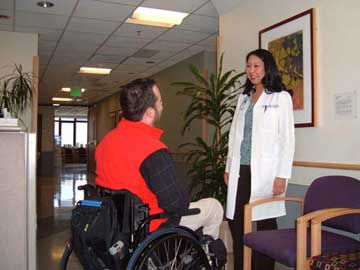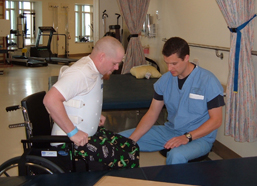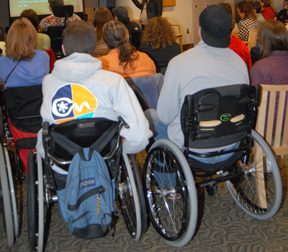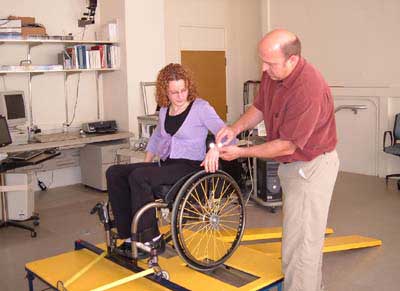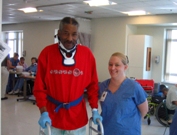Spinal Cord Injury Update
Summer 2011: Volume 20, Number 1
Transitions program paves way to independence, quality of life
For someone with a spinal cord injury (SCI), appropriate rehabilitative care is the first step toward maximizing functioning and quality of life. But what happens when a patient leaves the hospital? Navigating a new life after release from the hospital can be a challenge for people with SCI.
“Promoting long-term health in a person with SCI hinges not only on good medical care, but on learning about and adopting healthful habits and lifestyle choices,” said Maria R. (Rina) Reyes, M.D., UW assistant professor in the Department of Rehabilitation Medicine and medical director of the UW Medicine SCI Rehabilitation Program. “Outside the health care setting, a person has the potential to fulfill physical, emotional, social and intellectual needs.”
Now, thanks to generous private support, participants in the new Spinal Cord Injury Transitions Health Maintenance and Wellness Program have access to services beyond the top-ranked rehabilitative care they receive at UW Medicine. These services aim to help patients make the transition to independence.
The newly launched Transitions program is made possible by a $95,000 grant from the Craig H. Neilsen Foundation and a matching gift from Mr. Kenny Salvini, his family and friends. The Neilsen Foundation, which has provided UW Medicine with generous program and research funding in recent years, is dedicated to supporting treatment- and cure-based SCI research as well as innovative programs that improve quality of life with SCI.
“Transitions promotes lifelong wellness, independence and participation by introducing and encouraging healthful practices as individuals with SCI make the shift from acute, inpatient care to community living,” Reyes explained.
A resource for patients during the critical first two years after injury, Transitions will directly serve about 100 individuals each year — primarily Washington residents, but also patients from Alaska, Montana and Idaho — and is a resource for our broader SCI population as well.
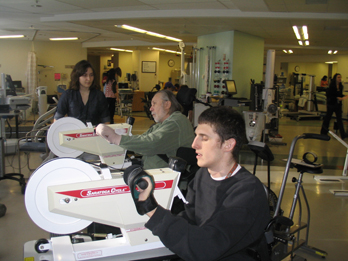
The individualized program provides opportunities to participate in supervised adapted exercise, join community recreation programs, master adapted driving skills, make use of technology that promotes vocational exploration, and access counseling services. The program components, most of which are not funded by the majority of common insurers in Washington State, include:
- Physical activity. A twice-weekly group exercise class using specialized equipment helps to maximize independence and safety and motivates participants to integrate exercise into daily life.
- Education. A recurring educational series reviews medical complications, nutrition and weight management, coping and pain-management strategies, and vocational and social resources.
- Adapted driving. Scholarships offer eligible individuals the opportunity to complete adapted driving evaluation and training, thereby fostering independence.
- Community recreation. The program supports participation in community-based adapted exercise, yoga, aquatics, fishing and sailing trips.
- Assistive technology. A pool of laptop computers for short-term loan will encourage exploration of community resources and assist with pre-vocational preparation after discharge.
- Rehabilitation psychology. The program provides eligible individuals with rehabilitation psychology visits to address mood and adjustment, to provide strategies to manage pain and to maintain a healthy lifestyle.
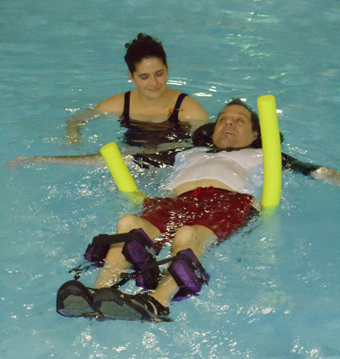
Drawing on the expertise of the UW Medicine SCI Rehabilitation Program, Transitions provides a multidimensional and ground-breaking level of post-rehabilitative care in our community that integrates wellness and redefines health promotion after SCI.
For more information, visit the Transitions website at http://sci.washington.edu/transitions or email sciwell@uw.edu.
